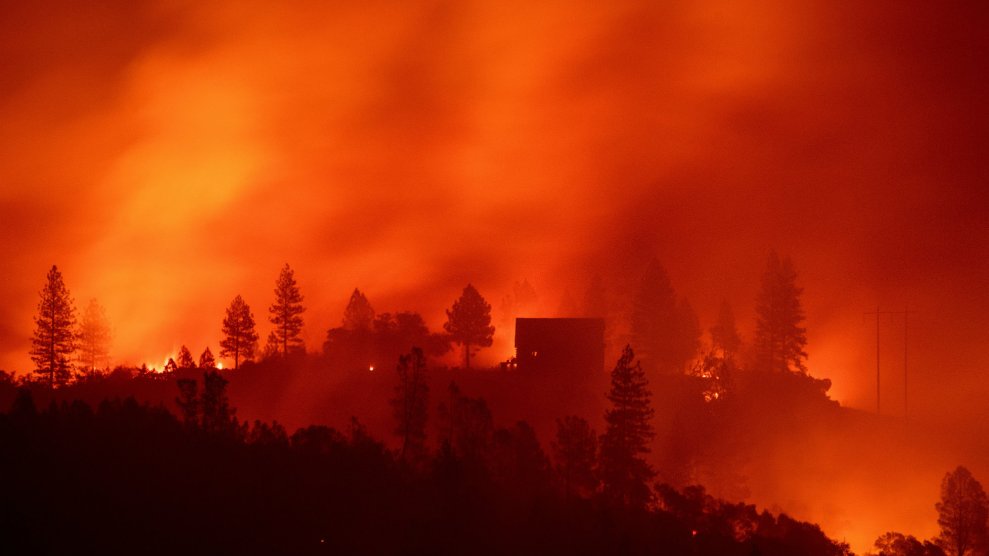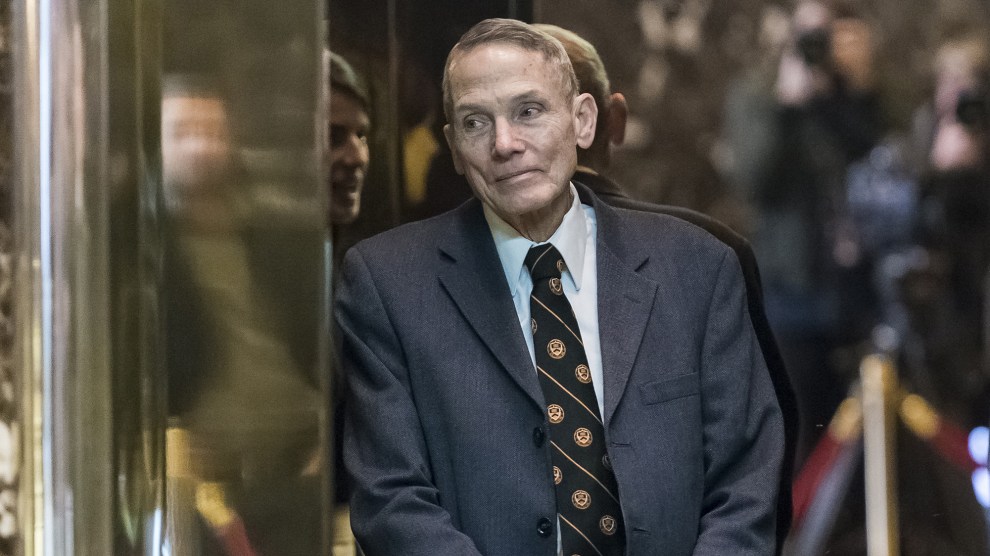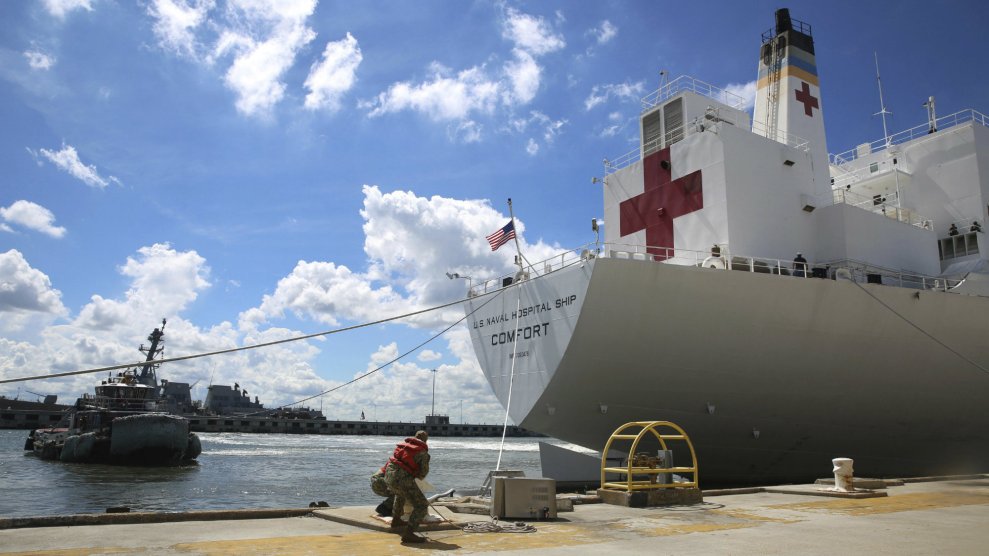
Josh Edelson/Getty Images
This story was originally published by the Guardian and is shared here as part of the Climate Desk collaboration.
A US government climate change advisory group scrapped by Donald Trump has reassembled independently to call for better adaptation to the floods, wildfires and other threats that increasingly loom over American communities.
The Trump administration disbanded the 15-person Advisory Committee for the Sustained National Climate Assessment in August 2017. The group, formed under Barack Obama’s presidency, provided guidance to the government based on the National Climate Assessment, a major compendium of climate science released every four years.
Documents released under freedom of information laws subsequently showed the Trump administration was concerned about the ideological makeup of the panel. “It only has one member from industry, and the process to gain more balance would take a couple of years to accomplish,” wrote George Kelly, then the deputy chief of staff at the National Oceanic and Atmospheric Administration, in a June 2017 email.
The advisory group has since been resurrected, however, following an invitation from New York’s governor, Andrew Cuomo, and has been financially supported by Columbia University and the American Meteorological Society. It now has 20 expert members.
The panel is now known as the Science to Climate Action Network (Scan) and has now completed work it would have finished for the federal government, releasing a report on Thursday warning that Americans are being put at risk from the impacts of a warming planet due to a muddled response to climate science.
“We were concerned that the federal government is missing an opportunity to get better information into the hands of those who prepare for what we have already unleashed,” said Richard Moss, a member of Scan and a visiting scientist at Columbia University, who previously chaired the federal panel.
“We’re only just starting to see the effects of climate change, it’s only going to get much worse. But we haven’t yet rearranged our daily affairs to adapt to science we have,” he added.
The fourth National Climate Assessment, released on the day after Thanksgiving last year, detailed how climate change is already harming Americans, with sobering findings on future impacts. At the time, Trump said he didn’t believe the report.
“The impacts and costs of climate change are already being felt in the United States, and changes in the likelihood or severity of some recent extreme weather events can now be attributed with increasingly higher confidence to human-caused warming,” the report, the work of 13 US government agencies, states.











